╳

Get The Latest On Our Greatest
Subscribe to Our Company/Product Updates

Thursday, July 13, 2017
I’ve worked as a builder and as a consultant for many DIY clients, and I’ve seen lots of different home improvement strategies. When clients put in a new fence to increase their property’s resale value, some make a point of choosing fencing materials that will still be valuable down the road, while others think of the fencing as being less important, and instead spend more resources on the home itself. I think of these as the ‘looking down the road’ and the ‘fast fix’ strategies.
In my experience, my fellow builders and DIY clients who think long term and have committed to creating lasting quality in their homes and developments are the ones who are able to bump up resale value the most. To accomplish this, they look for the best fence for resale value--one that lasts a long time, requires little maintenance, and possesses a classically attractive aesthetic. Of course, there are more than a few ways to achieve this, and we’re going to talk about those ways now.
Can a Fence Add Resale Value?
Even with mounds and mounds of data, the answer to the question of whether or not a fence actually adds retail value is not easy to find. An internet research session yields a lot of fence builders who may have too much skin in the game, and not many unbiased sources. In this case, a better way of getting at the answer is through common sense--and some attention to aesthetics. The resale value a fence adds clearly depends on how the fence suits the home, the context of the home, the types of fences around it, the initial cost of the fence to install, and many other factors.
One big factor is the condition of the fence, and how well it holds that condition. Houses and properties that are beautiful and look well-tended retain value more easily than those in a state of disrepair and neglect. I’ve seen a few clients slap up cedar fences with a quick sale in mind, only for the house to stay on the market for years, forcing them to make a few fence maintenance sessions while it was on the market--even replacing some sections outright. The bottom line seems to be that a durable fence that adds beauty and functionality will generally add to the overall property value, while a fence with issues will not (and could even drag the property value down).
The Best Fence for Resale Value: Choose a Classic Look
By ‘classic’, we aren’t talking about a ‘vanilla’ kind of design that seeks to offend no one, but ends up not pleasing anyone. While it is impossible to please everyone, there are some fencing styles that remain attractive no matter what decade they happen to find themselves in. While I’ve built a few plenty more fence types than what I’ve listed below, these three have by and large accounted for the vast majority of my work and what I see going up in my city, and there’s a reason for that. They’re reliable, useful, and they look great if kept in good shape.
Finding Long-Lasting Durability and Easy Maintenance
Durability matters to most buyers, which affects resale value. Those who fall into the ‘fast fix’ camp might bump up property value and appearance for a time, but that same fence might detract from the home a few years down the road. That’s why it’s important to choose durable materials that will remain so for a long time. Most of the fences I’ve installed to spruce up a home have either been made of wood or steel. Both offer decent durability, if you choose the right type.
It’s clear that different situations will call for one kind of fence over another. My tendency is to fall in the ‘looking down the road’ camp and focus on finding the very best, because I believe that that’s what will add value in the long-term. When steel fencing is the best fit for a house, I pick one with excellent protective coatings and high-quality welds.
In my opinion, the company with the best of both of these is Fortress Building Products. With a range of design options and the possibility of customization, Fortress’ steel fences are galvanized, then coated with a zinc pre-coat, then with an e-coat, and then finally with a UV-resistant coat of powder paint. This redundancy and toughness make these fences wonderful choices in a wide range of situations, especially when they’re being installed to help boost property value. In addition to their fences, Fortress also produces an array of other innovative, yet classically beautiful building materials, which are worth a look if you’re working on projects that require high-quality decking, railing, or hardware.
Search